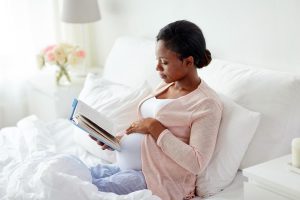I LOVE Lena Dunham as much as the next woman. So when she announced last week on Twitter that she uses “birth control” to treat her endometriosis, I got that she was utilizing her celebrity status to take a stand for women and their reproductive rights. She has likewise partnered with Planned Parenthood for her upcoming book tour in order to support open access to the drugs, devices, and abortions the religious right wants to see restricted.
As a British woman brought up with universal healthcare, I see the Hobby Lobby decision as not just worrying, but frankly absurd.
Within hours many women, and some men, had responded to Lena with their own reasons for using “birth control.” The rationales ranged from enthusiastic declarations of busy sex lives to more vague iterations of desiring a career or a diploma over a baby, at least right now. Additionally, many women complained of suffering from PCOS, adult acne, PMS, cramps, and heavy bleeding. The Huffington Post soon scooped up the Twitter chat, as it is want to do, and slapped on the headline: ‘Lena Dunham Asks Why Women Use Birth Control, World Learns Critical Lesson.’
It was clear from the celebration of this conversation that the critical lesson we were supposed to be learning is that “birth control” is a necessity. In fact, Keli Goff of The Daily Beast wrote a follow-up piece that said just that: “My guess is that if President Obama stopped talking about ‘choice’ and ‘reproductive health’ and repeated over and over ‘A lot of women have heavy menstrual bleeding and need medication,’ most male opposition would retreat.”
For me however, there were several critical lessons and conversations overlooked while we were busy congratulating Lena on her advocacy.
First. We need to stop calling the birth control pill or hormonal birth control simply “birth control.” We need to stop using the term as though it were synonymous with hormonal drugs and devices alone.
A woman can achieve a career or get a diploma, choose when to have a baby, and live a fulfilled and successful life, without using the Pill or another hormonal birth control method. I know, because I’m doing it right now. When a woman today says that she doesn’t use “birth control” she means she’s not on the Pill, not that she isn’t trying to avoid pregnancy whatsoever. This leads to a lot of misunderstandings.
When Lena says she uses “birth control” she means the Pill. When Keli says “we need contraception” for “endometriosis or acne” she means we need hormonal birth control. Neither of them are talking about diaphragms, cervical caps, or the sympto-thermal method.
The second lesson we need to learn is that a lot of women are so unwell as a result of their reproductive organs that it is deemed necessary that they either take a daily medication or have a device fitted in their body to secrete synthetic hormones, for decades. This, I think, is shocking.
If the same number of young men explained that they needed daily medication just to function, what would we think? Would we welcome their suffering with open arms as proof that the religious right is plain wrong? Take that, right-wingers, women aren’t sluts, they’re just fundamentally flawed!
It’s possible. We live in a culture that deems the male body as the ideal and the female body as inherently faulty or broken, problematic at best.
We might want to consider why so many women have continual difficulty with their menstrual cycles. What is causing these health issues? Is it environmental, dietary, stress-provoked, or related to early Pill uptake? What is the root cause? I, for one, am not ready to accept that this is just the way things are for women.
What happens to the women that are really suffering in a society that presumes women are inherently unwell?
Hopefully Lena’s declaration will cause women to be more likely to discuss their health problems openly, but what kind of care will they be met with? Clearly, it’s the Pill. But, is the Pill a necessity or a requirement?
From an outsider’s perspective (one, I feel I can still rightfully take, maybe just until I get my passport), the left is evangelical about the Pill and misguided on its benefits. I might even say, almost as misguided as the right is about its drawbacks.
As such, the third lesson we need to learn is that the Pill does not treat endometriosis. It alleviates the symptoms, but it does not treat, resolve, or fix the problem. It does not touch the root cause. When a woman comes off the Pill, it is most likely that the symptoms will return. What the Pill does is suppress the body’s production of hormones that cause a woman’s menstrual cycle. The Pill then replaces this production of hormones with its own, usually consistent, stream of synthetic hormones. As a medication it masks the underlying issue. In that way, it’s more “hormone replacement” than “birth control.”
It’s a Band-Aid at best.
So, when Lena Dunham says she “needs” the Pill, on one level we do indeed need to know that endometriosis is a debilitating disease that women absolutely need relief from and that the Pill can, for some, provide that relief. But, on another level, we might want to ask – where are the real treatments, the ones that heal and restore health and fertility? Despite evidence to the contrary, it is possible to contemplate both of these thoughts at once. I am not saying women should not have access to the Pill (remember, I’m British), only that we might want to contemplate whether it is really the best healthcare we can provide to women with endometriosis, or if the medical industry’s reliance on this drug as the answer actually reveals how little the system cares or knows about women’s health matters.
Almost simultaneously to the Twitter conversation prompted by Lena, another was building regarding an article published in the UK Observer about the potential mental health impact for women on the Pill. As many women were sharing why they “need” hormonal birth control, many others were sharing why they cannot use these drugs and devices, as they cause them to become anxious, depressed, and even suicidal.
These side effects, and others, are frequently swept aside when we focus on maintaining access.
When Buzzfeed jumped on Lena’s bandwagon with ‘We Asked 22 Women Why They Take Birth Control’ (note: “take” – so we’re talking about the Pill here, not other contraceptives), it was not so surprising that a Buzzfeed user decided to answer this with her own list – ‘We Asked 24 Women Why They Don’t Use Birth Control.’ Some of the women’s answers are extremely problematic, but there are also these messages – ‘Because it treats the symptoms and not the problem,’ ‘Because I have PCOS and the Pill does less than natural alternatives but the pharmaceutical companies want to make $$,” and “Because I want a healthy, natural, organic body.” The response to this from the left – mocking, outrage – suggested that, when it comes to this topic, we are getting too used to yelling with our fingers in our ears.
Therefore the fourth and final critical lesson we ought to learn is that politics should not blind the left to the Pill’s failings or deafen us to women’s experiences when doing so fails those very women.







-300x169.jpg)


-300x221.jpg)






